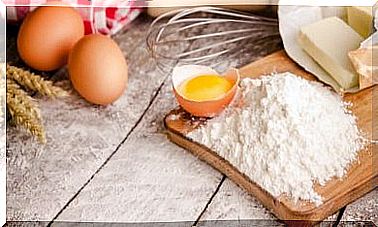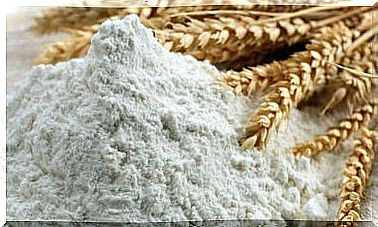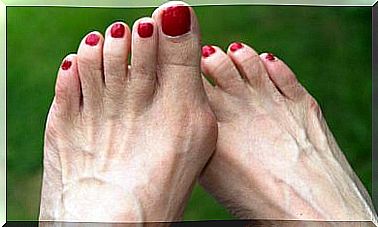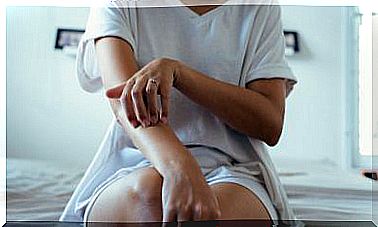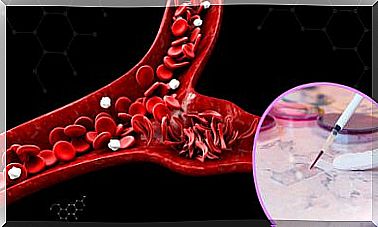Why Are Heels Itching?
Many people suffer from itchy heels and do not know why. In this article, we explain its causes and some tips to avoid it.
The feet are responsible for supporting our weight. Can you imagine that weight multiplied by the number of steps we take per day? The result can give the idea of the wear and tear they suffer on a daily basis.
However, the feet, and the heels in particular, are one of the parts of the body that we pay the least attention to. In fact, many people’s heels itch and haven’t even wondered why.
In this article, we will tell you about some of the causes of that uncomfortable feeling that sometimes prevents us from resting when we try to sleep. In any case, it is advisable to go to the doctor for a diagnosis and thus find out the exact cause of the itch.
Itchy heels: aesthetics or health?
As part of the feet, the heels are often the great forgotten. This happens especially during winter, because they are covered by socks and shoes.
This inattention improves slightly with the arrival of spring, due to the need we have to wear open shoes. So, we take care of them a bit. However, the care of the heels, instep, toes and nails should not be a matter of season.
You must always take care of them. Otherwise, they could cause discomfort and even ailments.
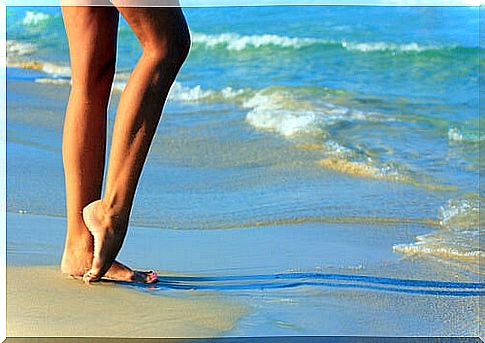
Itchiness in the heels or the sole of the foot is more common than you think. While it can occur at any time of the day, it gets worse at night. This is mainly due to the fact that contact with the sheet or with the bath water increases the itchiness. In many cases, the itching is such that it prevents rest.
In addition to taking care of the itch, you also have to pay attention to other symptoms. These are mostly due to dermatological reasons, but also to the existence of some internal disorder.
Hence, a sign such as itchy heels should be a reason for consultation with the doctor. The specialist will determine if this problem must also be treated medically.
Possible causes of itchy heels and sole of the foot
1. Contact dermatitis
It occurs when the skin is exposed to certain materials or substances that cause an allergic reaction, according to this study carried out by Hospital La Fe (Valencia). So, talcum powder, deodorant, and soap could be the reason your heels itch.
Another symptom that we have contact dermatitis is redness in the area. Maybe it could be due to the shape and materials of the shoes and socks we wear.
2. Dyshidrotic eczema
Also known as “dishidrosis” , according to information obtained by the Mayo Clinic, it is in the form of blisters and lumps in the affected area. Besides causing intense itching, it also causes discomfort when sleeping and walking.
3. Mycosis
Fungi can also lodge in the heels when they are cracked. Athlete’s foot and onychomycosis can spread by contagion to any other part of the body, including the sole of the foot.
One of its most characteristic symptoms is thickening of the skin. The color of the affected area is usually different from that of the healthy parts. Typically, it ranges from yellowish to whitish.
4. Psoriasis
This skin disease causes dry skin patches and thickens the sole and heels. When palmoplantar psoriasis appears, it is a bit uncomfortable to walk due to itching or itching. Fortunately, according to this study by Dr. Robert Chalmers, it has various treatments.
5. Internal diseases
In addition to external pathologies, there are some diseases that cause itchy feet, such as:
- Hypertioridism According to information obtained by the Mayo Clinic, it could influence foot inflammation.
- Liver problems
- Renal failure (related to diabetic foot, as stated in this research carried out by the Hospital Universitario Insular de Gran Canaria.
- Crohn’s disease.
- Diabetes, as stated in this report from the National Institute of Diabetes and Digestive and Kidney Diseases.
- Celiac disease, as suggested by this study carried out by the University of Valencia.
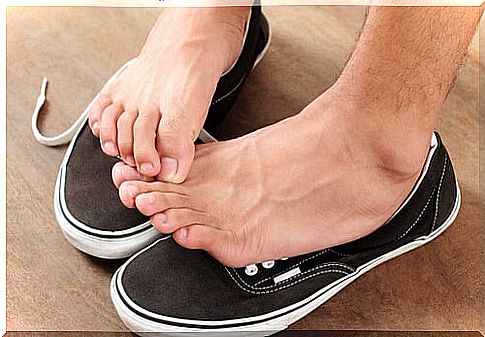
Ideas to reduce itchy heels
Almost everyone has or has had a problem with the skin of the feet. Most of them don’t care until the symptoms are unbearable. Don’t go to that extreme.
So pay attention to these recommendations for healthy feet all year round:
- Dry your feet well after bathing, when leaving the pool or if you get wet in the rain.
- Avoid using soaps with very strong perfumes or water that is too hot.
- Choose good shoes that are not too tight and in which the foot breathes as much as possible.
- Wear cotton socks. These absorb moisture generated by sweat.
- Take off your shoes and socks as soon as you get home, especially if you’ve been exercising or it’s hot.
- Apply moisturizers after bathing.
- Exfoliate them weekly.
- Use a file or pumice stone while taking a shower to smooth out any rough spots.
Home remedies for cracked heels
Most of the time, itching in the heels and sole of the foot is due to the skin not being cared for properly. With the following natural recipes, you can treat the problem:
1. Banana
Once you’ve eaten the banana, don’t discard the peel. This study by the Halgekar Institute of Dental Science’s and Research Center (India) suggests that it has antibacterial properties.
- Rub the inside against the skin for a few minutes.
- Let it dry for 15 minutes.
- Lastly, rinse off with lukewarm water.

Another way to benefit from the properties of banana:
- Crush a very mature one.
- With the resulting paste, do a moisturizing treatment.
- Let the pulp cover any cracks or lesions for about 10 minutes.
- Rinse with lukewarm water.
This is something you could do weekly.
2. Lemon juice
If you have very cracked heels and that are why they itch, lemon can be very useful, since it is anti-inflammatory, according to this study carried out by the Federal University of Rio de Janeiro. Cut a slice and rub it on the affected area. You can also make a refreshing soapy solution.
Ingredients
- The juice of 1 lemon
- 3 cups of warm water (750 ml)
- 1 teaspoon of liquid petroleum jelly (5 g)
- neutral soap
Preparation and application
- Mix everything very well and submerge your feet until the water cools down.
- Remove and rinse with clean water.
- Dries well.
3. Coconut oil
Known for its extremely beneficial properties, coconut oil is, according to this study by the Himalaya Drug Company, anti-inflammatory when applied topically. Not only does it moisturize them when they are too dry, but it removes dead cells.
To top it off, it also has the ability to reduce inflammation and reduce itching. This could be one of your routines if you are determined to take regular care of your feet:
- Every night before going to sleep, massage them with a few drops of coconut oil.
- Put on some socks.
- And, let it act all night.
You could rinse them the next morning if you wanted, but it is not necessary.
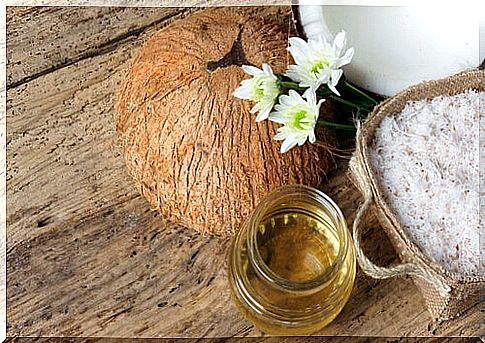
If you suffer from frequent itchy heels, do not hesitate to see your doctor. A more serious problem may be behind it that requires medical attention.
